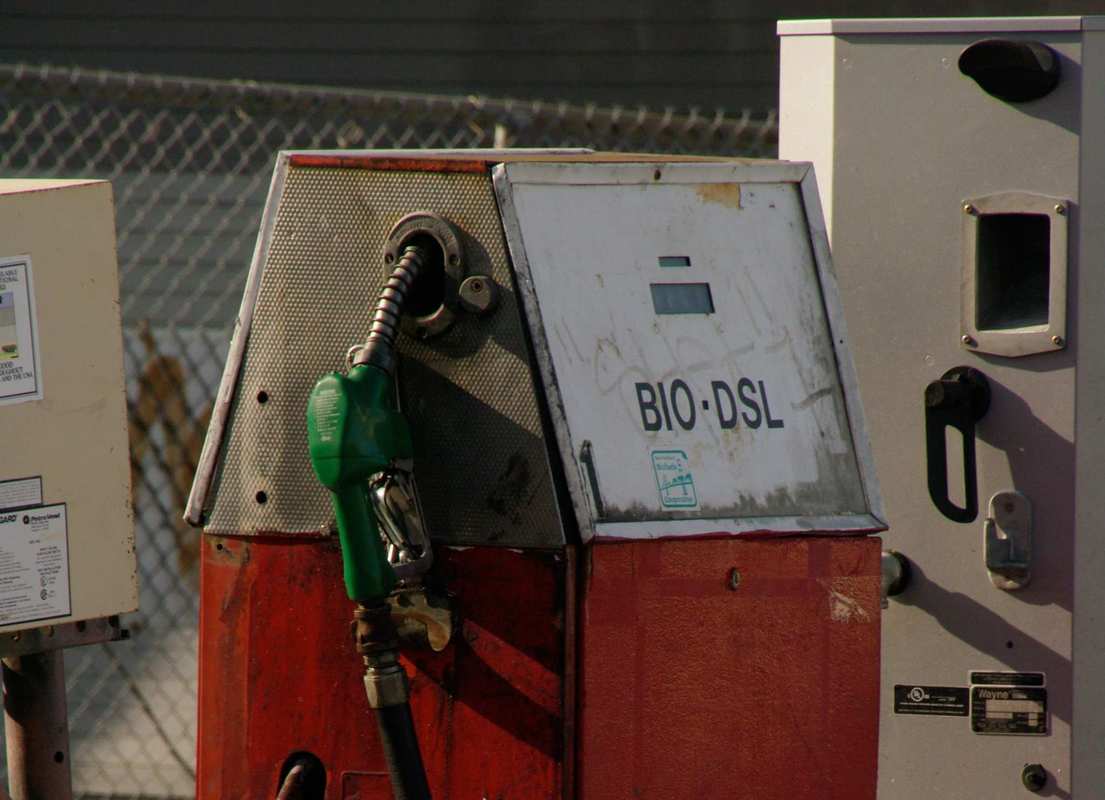Hemp biofuel could be a key part of reducing our dependence on fossil fuels.
Fuel is everything. America would not be the hyper-efficient economy it is today without something to power our cars, computers, and our Roomba vacuum cleaners. We would be nothing but Neolithic farmers without our electricity and gasoline.
But, anything that is truly valuable always comes at a price. Traditional fuel sources hurt the environment, and they’re running out. Air pollution from processing fossil fuels harms the troposphere, and indirectly depletes ozone from our atmosphere. The price for hyper efficiency is evident, which is why alternative fuel sources are becoming so important. Today we focus on a fuel source that hits close to home. That alternative is hemp biofuel.

The cannabis plant is the gift that keeps on givin’. This magic plant gives us CBD oil, THC, hemp fibers and even fuel! Researchers have made hemp into two types of biofuel: biodiesel and ethanol.
Hemp biodiesel
Biodiesel is produced by the pressing of hemp seeds to extract their oils & fats.
After the extraction, the product is then put through more steps to make it into a usable hemp biofuel for your car. If you’re curious to learn about the specifics of biodiesel production, the process is thoroughly explained by hemp.com.
The argument for hemp-derived biodiesel comes down to convenience. If processed correctly, biodiesel can be put into any diesel-powered automobiles. It can be stored and transported like diesel, so there isn’t a need to create a new system for transportation. It even replaces the smell of traditional diesel with the smell of hemp.
Using hemp to make ethanol
Ethanol is traditionally made from wheat-based crops such as corn and barley. It’s traditionally used as an additive to gasoline, which gave way to our “flex-fuel” vehicles of today.
Hemp can be made into ethanol by various forms of fermentation. Using hemp as the main source of ethanol, instead of food crops like wheat & corn has clear advantages. Not using food crops as a fuel source allows more efficiency in food production, and hemp can be grown in lower quality conditions unlike corn or wheat. Hemp-derived ethanol also shares the advantages of transportation and usability as biodiesel.

Hemp biofuel: A more sustainable alternative?
Fuel alternatives like this can seem like a no-brainer to replace our traditional fossil-fuel sources, but there are drawbacks to these alternative techniques.
To set up a large-scale industrial hemp farm, you will experience the same ethical dilemmas that the farming industry faces. Deforestation and pesticide use will increase, and we’ll inevitably replace some of our food-crop land with more hemp-crop land. Farmers can grow hemp biofuel on land that is not fit for other crops. This “marginal land” is essentially land that isn’t tilled and cleared out for farming.
Despite the versatility, hemp produces a much bigger harvest in ideal farming settings. Additionally, marginal land is actually home to important plants, trees, and living creatures that are vital to the ecosystem. Read “Is Hemp The Best Biofuel?” from sensiseeds.com for a more in-depth look into the argument for hemp biofuel.
Clearly, hemp biofuel alone won’t solve our environmental crisis, but we believe it could be part of a transition to a cleaner way of living.
The auto industry already uses hemp
While hemp biofuel may not be a popular alternative just yet, the automotive industry already uses hemp.
Automakers weave hemp plastic into a bendable material similar to fiberglass. Almost all European car makers use hemp fibers as interior door panels and trim pieces. And companies like FlexForm technologies operate as a dedicated producer of hemp-fiberglass that they sell to automotive companies to be made into car doors and exterior panels.
Cars that feature hemp-based materials include the BMW i8 supercar and the Lotus Evora. The advantages that come with hemp-made materials is that they are lighter, bio-degradable, and comes from a much easier renewable resource. Hemp grows in roughly 3 months while metals take thousands of years to form.
The future of hemp fuel
Now that hemp is legal in the U.S., we’re witnessing the beginning of hemp revolution. We hope that means more hemp material available for experimental uses like fuel, in the not too distant future.
While hemp biofuel can’t solve the entire energy crisis (we believe the answer to that problem will require multiple solutions), it can provide us with a great renewable fuel source in addition to its already useful applications.
While we spent our time here discussing hemp biofuel, let’s not forget the other ways people have been using hemp. There’s hemp beer, hemp paper, and, this reporter’s personal favorite, hemp food! The future is indeed green.
Article updated October 2019.







Are yo KIDDING?!
You plan to use the seed as a base for bio-diesel fuel? There is not enough seed to make that economically viable for starters.
I have read that the engines would have to be reconfigured to use hemp bio-diesel. The ethanol engines could not safely use hemp bio-diesel.
Hemp bio-diesel can run in any conventional combustion engine, although for most models a 5$ hose has to be installed easily at home.
did you even read the story?
not so sure that ethanol can be made from hemp using conventional processes. hemp is woody biomass, not starches and sugars that you need for fermentation. it would have to be a cellulosic process, which is a technology that has had many failures.
lmfao my Bmw wouldn’t run right on this
I have a 2017 dodge 2500 Ram truck. Would it run on hemp bio-diesel?
Turning hemp cellulose into liquid fuels like ethanol consumes more energy than it generates.
I personally think that the future of the automotive industry could be hybrid hemp biofuel/solar powered vehicles.
I have worked as a project facilitator in an engineering firm that dealt primarily with ethanol producers across the midwest. During the time I worked in this position, a major ethanol producer was receiving money to produce ethanol from cellulose. Over a period of 6 or 7 years the taxpayers of this country provided millions of dollars to a facility in Iowa to perfect a fermentation process to produce ethanol from biomass profitably. To the best of my knowledge that still hasn’t happened and this was 8 years ago. What makes anyone think that somehow, if farmers are allowed to grow industrial hemp that it will become the feed stock to produce an appreciable amount of biofuel for our automobiles? It won’t. This really isn’t a huge deal, but the process should be allowed to play out. The free market will see if hemp can be a viable feedstock for biofuel. If it can, people will demand it as a feedstock, and farmers will make money providing it. If the money isn’t right, it won’t and it will fizzle and die.
It’s better than bio diesel
Very good article. However, there aer several editing errors.
First Big editing error…
“Ethanol is traditionally made from wheat-based crops such as corn and barley.” Neither corn, nor barley are “wheat-based crops”. Only wheat is a “wheat-based” crop. I believe the author meant to say “grain-based” crop. However, in a sense buckwheat, and rice are grain-based as well. I think they need to do a better job of editing if they wish to educate the public properly. No point in putting misleading, much less incorrect, information out there.
Another error, or rather misinformation.
“…while metals take thousands of years to form.”
Metals don’t form. They are either there, or not. The earth has a limited number of metal resources. We might some future day, many milennia down the road, be able to mine metals from other moons, or planets. but the only way they form is by the Creator.
I’m all for alternative fuels, and resurces uses to fuel our desires for modern mechanization. However, please let’s share responsibly with the general public. They often will believe everything they read and are not well read. Then the misinformation is spread as fact, and there is no changing their minds. Let’s eductae them properly.
Btw, in North Carolina there is a strong movement of using recycled vegetable oils convereted to biofuel. I’d love to see more of that occurig nationwide on a more “industrial” level.
Since ethanol can be created from hemp, and polyethylene from ethanol, another focus for the industrial use of hemp should be the space industry.
Radiation is the number one problem that NASA faces in space exploration outside of Earth’s magnetosphere.
Radiation risk management for human space missions depends on slowing or stopping high-energy heavy ions and nuclear fragmentation in matter, reducing both the physical dose and the biological effects of the radiation encountered in deep space.
Hydrogenous materials and light elements are more effective shields against the harmful effects of cosmic rays than aluminum, which is used in current spacecraft hulls. NASA has chosen polyethylene, CH2, as the reference material for accelerator-based radiation testing of multi-function composites that are currently being developed.
Polyethylene is a good shielding material because it has high hydrogen content, and hydrogen atoms are good at absorbing and dispersing radiation. Not only that, it’s strong, can be strengthened with hemp fiber, Kevlar or other materials and may even provide excellent protection from meteorites.
Polyethylene shielding is too heavy for space ships that launch from the ground. For future exploration to be feasible, ships will need to be built and fitted with shielding in space.
Since ships will be built in space, and large quantities of polyethylene material will be essential for building ships, it would be logical to explore producing the raw materials in space.
Imagine growing hemp in space on space stations to produce shielding or even entire ship hulls from bio-polyethylene.